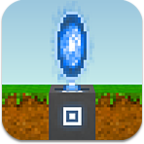>McClaw |
>McClaw |
| Line 1: |
Line 1: |
| I'm fine with a bed disambiguation, but my problem with door, trapdoor, and bucket, is that if someone is searching for door, and they don't specify iron door, then they probably aren't looking for iron door and the hat note that you can see on door suffices. --[[User:Abcboy|Abcboy]] ([[User talk:Abcboy|talk]]) 09:50, 3 August 2013 (MDT) | | So I'm thinking that the "back wall" feature has become complex enough to warrant getting its own page. --[[User:McClaw|McClaw]] ([[User talk:McClaw|talk]]) 10:16, 24 November 2014 (MST) |
| :Yeah, with three versions of "bed" it's a little more useful, and most of the others have only two versions and can get away with a "for X see Y" note. Bucket is the odd one, though, as it's the same item in four multiple, independently stacked states, three of which revert to the first when used. --[[User:McClaw|McClaw]] ([[User talk:McClaw|talk]]) 10:13, 3 August 2013 (MDT)
| |
| ::Same with chest you could add one for that, but if people search chest they are probably not looking for golden chest. I think instead at the top of the page there could be "This is the page for chest (the crafted item at a woodwork bench, for a golden chest (a chest that spawns randomly on a map) go here" -Craig.Davison
| |
| :::Looking at it from a perspective of simplicity, when there's only two versions of something a "see instead" comment would suffice. Where a disambiguation page is more useful/common is when an easy term refers to at least three items that are not a recognized category (e.g. ingot, gem). "Bed" and "bucket" might fit, but might only need a clear and obvious list of "see instead" links. --[[User:McClaw|McClaw]] ([[User talk:McClaw|talk]]) 20:53, 9 August 2013 (MDT)
| |
Revision as of 12:16, 24 November 2014
So I'm thinking that the "back wall" feature has become complex enough to warrant getting its own page. --McClaw (talk) 10:16, 24 November 2014 (MST)
